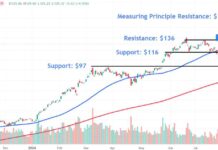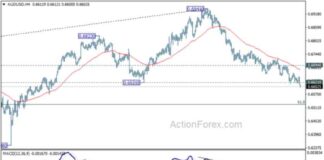Oil markets experienced significant volatility today, with Brent prices initially rising by 3.5% before settling at a 2.7% increase. This surge was in response to Iran’s missile attack on Israel, which led to fears of potential supply disruptions. Israeli PM Netanyahu’s threat to retaliate by targeting Iran’s oil infrastructure added to the tension. As a result, oil prices soared to over $75, up from $70 just two days ago. This spike in oil prices had a ripple effect on currency markets, with the Norwegian krone performing well against its G10 counterparts. The EUR/NOK pair eased to 11.66, with support levels around 11.6.
On the other hand, the Japanese yen weakened by over 1%, causing USD/JPY to rise above 145. Japan’s new prime minister, Shigeru Ishiba, expressed his doubts about an additional rate hike after meeting with the Bank of Japan governor Ueda. This uncertainty erased any expectations for a rate hike in October. In the midst of all this, the EUR/USD pair remained relatively stable within a narrow range of 1.105/1.108. The US dollar saw some minor strength following positive ADP jobs data, which showed an increase in job creation compared to previous months.
In the bond market, US Treasuries continued their losses, with yields fluctuating across different maturities. German Bund yields followed a similar pattern, with gains in yields across various maturity periods. The recent comments by a member of the ECB’s governing council hinted at a possible rate cut in October, aligning with market expectations.
Shifting focus to Hungary, the government’s debt management agency updated its funding plan for the year based on the latest deficit and debt levels. Despite higher than expected bond and T-bill issuance, the agency maintained its financial plan due to a sufficient cash buffer. The forint faced challenges amid the escalating risk environment, with EUR/HUF approaching a key resistance level of 400.
In the UK, the BoE’s Financial Policy Committee highlighted ongoing risks to financial stability, including global vulnerabilities and potential market corrections. While UK credit conditions have improved, highly leveraged firms remain under pressure. The banking system, however, is deemed strong enough to support households and businesses in adverse conditions.
Overall, the financial markets are navigating through geopolitical tensions, economic data releases, and central bank actions, creating a dynamic and uncertain trading environment for investors. Traders are advised to stay informed and cautious in their decision-making process amidst the evolving market conditions.

















